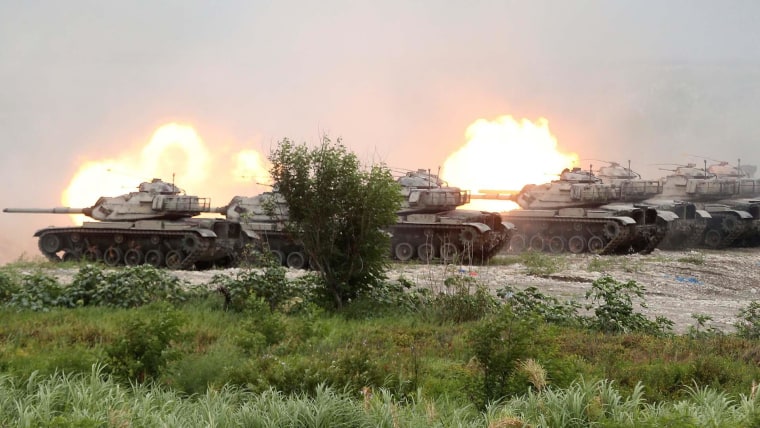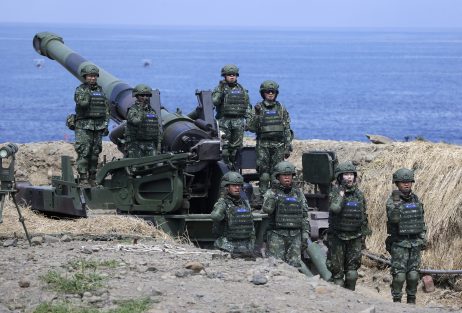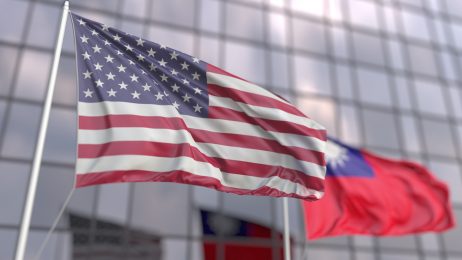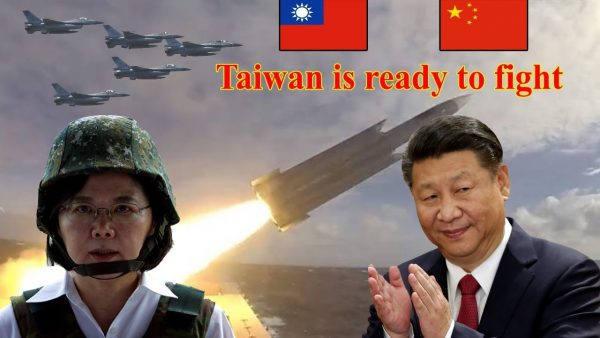In his speech celebrating the Chinese Communist Party’s 100th anniversary last week, Chairman Xi Jinping proclaimed that China has never bullied or oppressed the people of any other country. Yet that is exactly what Beijing is doing to Taiwan, and its intensifying aggression toward the democratic island is increasingly raising concerns that it will try to take it by force.
For years, world leaders have been hesitant to respond to China’s military aggression in the region. But Beijing’s escalating rhetoric and military developments are pushing Washington and its allies to work together in ways never done before, such as the joint U.S.-Japanese military planning for a conflict with China over Taiwan. Just Monday, Japanese Deputy Prime Minister Taro Aso declared that in the case of an attack on Taiwan, “Japan and the U.S. must defend Taiwan together.»
“Unifying Taiwan by force” as a Chinese policy has existed since Chairman Mao Zedong coined the term. Though the onset of the Korean War spared Taiwan such a fate at that time, China’s unfulfilled aspirations continue to haunt the Communist Party. In recent years, Xi has tied the annexation of Taiwan, which split from the Chinese mainland amid civil war in 1949, to his “China dream” for the “great rejuvenation of the Chinese nation.” In the eyes of Communist Party elites, unifying Taiwan is the final piece in making China great again.
The Communist Party now controls the most powerful military in Asia, the People’s Liberation Army, and Beijing’s increasing sense of urgency to annex Taiwan is evident in major changes to its military posture. Beijing understands that the United States is the most significant obstacle to its conquest of Taiwan, and has transformed its force to specifically offset U.S. operational advantages in the Pacific theater. To this end, the Chinese military has developed anti-ship ballistic missiles, attack submarines and an array of air and naval platforms for conducting saturation attacks to overwhelm enemies, all supported by space-based systems that make it more integrated and lethal.
Taken together, China’s emergence as a near-peer military competitor to the United States represents the single greatest strategic challenge facing Washington. The pace and intensity of China’s military modernization seem to have caught American leaders by surprise. This is perhaps less due to Beijing’s mastery at concealing its efforts and more to Washington’s complacent neglect of the Communist Party’s ambitious pursuit of national rejuvenation as a means to challenge the American-led, post-Cold War world order.
In this environment, it is impossible to accurately predict when China might attempt a full-scale invasion of Taiwan. Given the complexities involved, even Xi may not have a definitive timeline. However, the existence of a significant military imbalance between China and Taiwan – with the far more powerful side intent on bringing the other under political domination – increases the possibility and temptation for war.
What is certain is that the Communist Party is already taking action against Taiwan. For years, it has carried out deliberate and incremental military provocations below the threshold of armed conflict, with the objective of compressing the space in which Taiwan’s military can operate while intimidating its people. These operations have created significant challenges for Taiwanese leaders, who must carefully calibrate their responses according to the level of ambiguity and varying severity.
Such subconflict operations, known as gray zone aggression, include frequent airspace incursions by People’s Liberation Army fighter aircraft, shows of force by Chinese warships around Taiwan, cyberattacks and disinformation campaigns designed to demoralize Taiwan’s society and undermine popular support for the government in Taipei.
Soon, it’s conceivable we’ll see escalation short of all-out war. The exchange of fire between Chinese and Taiwanese forces, small-scale missile attacks and Chinese seizure of Taiwan’s outer islands are all possible. If Xi’s bid for a third term at the Chinese Communist Party’s 20th Party Congress in 2022 should fumble due to internal opposition, taking military action against Taiwan could validate his credentials as both a champion of China’s great rise and a strong leader who can stand up to America’s so-called hegemonic forces.
All-out war, however, is unlikely to occur in the near future, as the People’s Liberation Army still needs to address significant operational issues to mount an amphibious invasion of Taiwan. But the Communist Party has proclaimed that the military will be a fully modernized force by 2027, which could be when China perceives a window of opportunity for a full-scale invasion of Taiwan. Factors that could tempt Beijing to such military adventurism include diminished U.S. deterrence and continued failure by Taiwan to implement critical military reforms.





